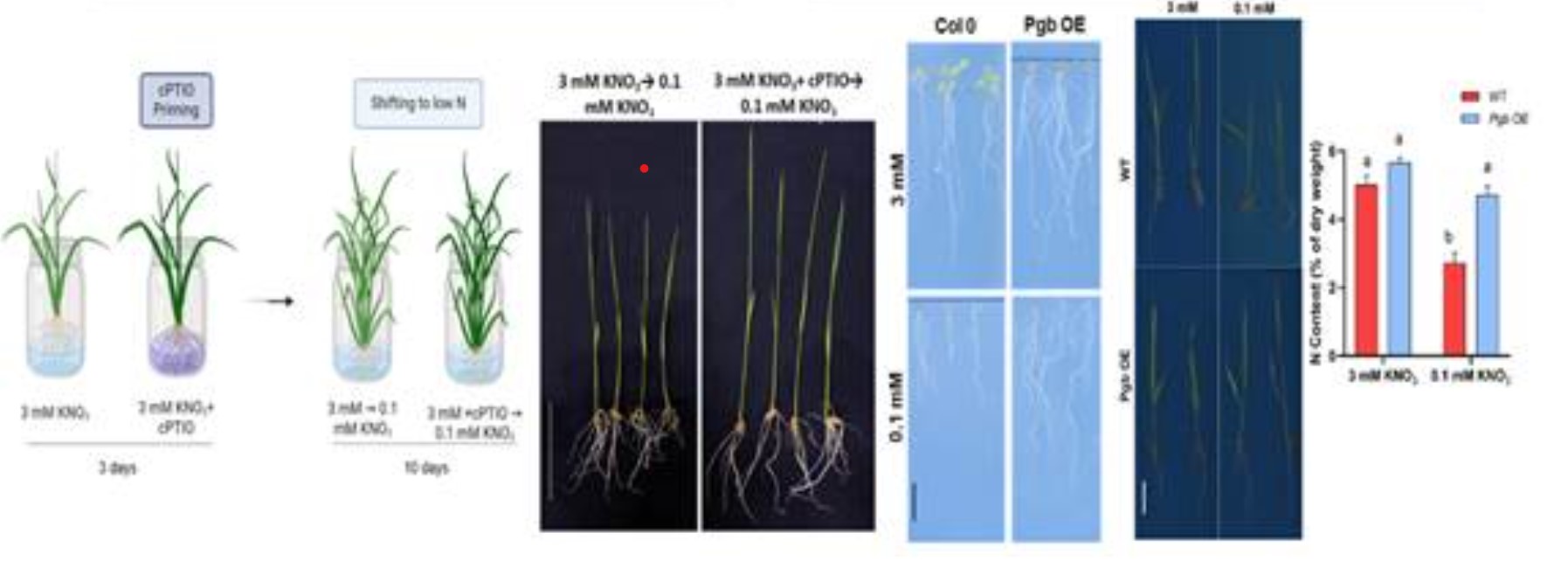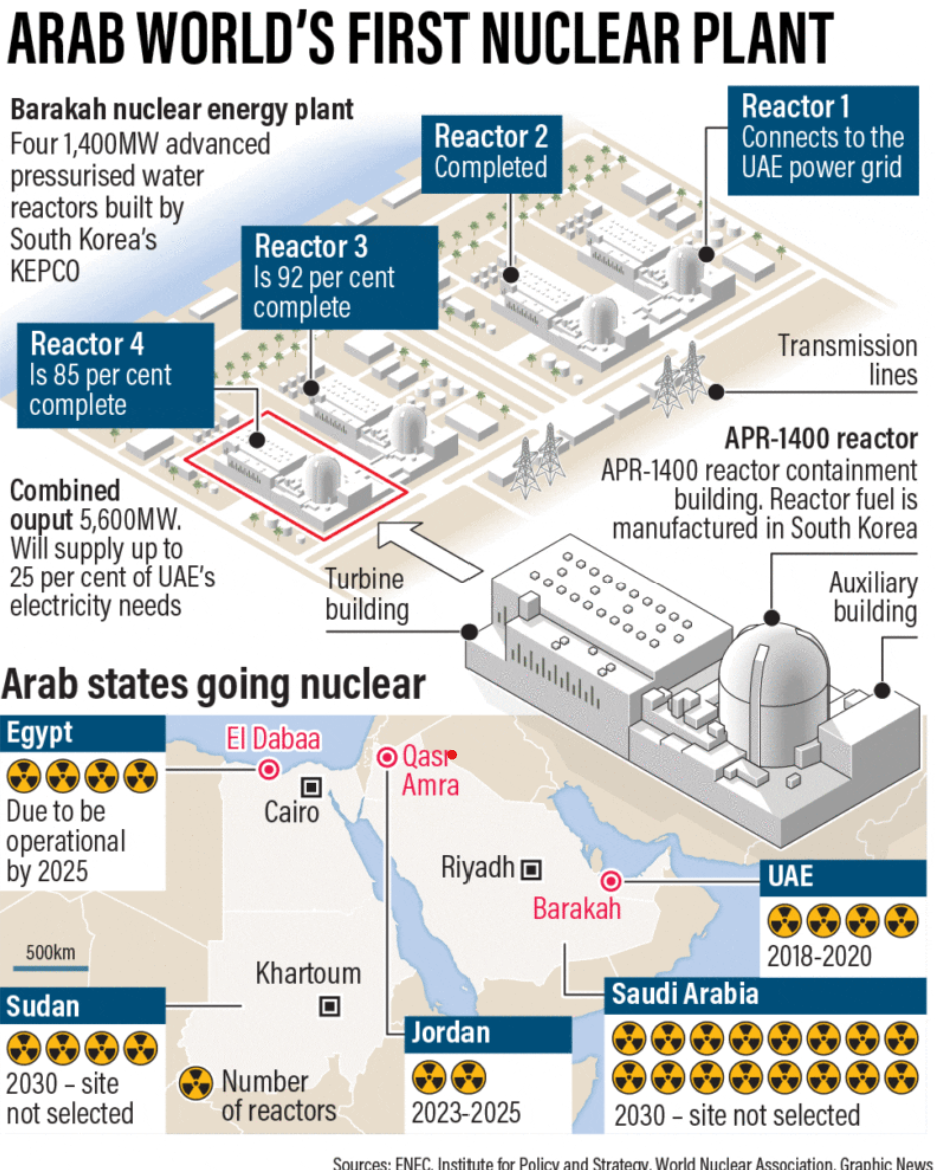GEAPP and ISA Sign $100 Million Agreement for Solar Projects

- 12 Jan 2025
In News:
The Global Energy Alliance for People and Planet (GEAPP) signed a Multi-Donor Trust Fund (MDTF) agreement with the International Solar Alliance (ISA) to mobilize $100 million for funding high-impact solar energy projects. This collaboration is part of a wider effort to accelerate India's clean energy transition, bridge financing gaps, and enhance the country's energy systems. Along with this agreement, two other key initiatives were announced:
- DUET (Digitalization of Utilities for Energy Transition)
- ENTICE 2.0 (Energy Transitions Innovation Challenge)
These programs aim to address energy transition challenges by fostering scalable, cost-efficient solutions, digitalizing utilities, and supporting innovations for sustainable energy.
Key Features:
- Multi-Donor Trust Fund (MDTF):
- The MDTF aims to raise and deploy $100 million to finance impactful solar energy projects, with ISA driving the strategic direction.
- GEAPP’s Project Management Unit will provide governance, fundraising, and technical expertise to ensure project success.
- The collaboration emphasizes the importance of solar energy in achieving India's clean energy goals.
- DUET (Digitalization of Utilities for Energy Transition):
- Focuses on transforming grid systems by digitalizing grid assets and integrating them with smart sensors.
- Real-time data will help reduce transmission losses and facilitate Battery Energy Storage Systems (BESS) deployment, assisting in the integration of Distributed Renewable Energy (DRE) into the grid.
- ENTICE 2.0 (Energy Transitions Innovation Challenge):
- A platform for identifying and scaling innovative solutions to accelerate the clean energy transition, especially within India's growing startup ecosystem.
- Focuses on supporting investable opportunities for energy transition solutions, building on the earlier success of ENTICE 1.0.
Global Impact of GEAPP:
GEAPP, launched with an initial commitment of $464 million, has already funded 130 projects across 40 countries. These projects have impacted over 50 million people, helping reduce 43 million tons of CO2 emissions. The collaboration with ISA is expected to deepen GEAPP's efforts in mobilizing capital to foster clean energy access and tackle climate change.
India’s Clean Energy Transition:
India has already extended electricity access to over 800 million people, but about 2.5% of households still remain unelectrified. Distributed renewable energy, especially solar energy, will play a pivotal role in reaching these underserved populations. India aims for 47 GW of battery energy storage systems by 2032, which will support grid stability and energy access.
Additional Initiatives and Impact:
- Battery Energy Storage Systems (BESS):
- GEAPP has also supported India’s first commercial standalone BESS project, which will provide 24/7 power to over 12,000 low-income customers.
- The project is set to lower electricity tariffs by 55%, benefiting economically disadvantaged communities.
- Strategic Alliances:
- The partnership with ISA and the strategic initiatives like DUET and ENTICE 2.0 aim to further India’s climate and energy goals, bringing renewable energy solutions to underserved regions, and supporting the country's energy security.
Role of GEAPP and ISA:
- GEAPP works to mobilize financing, provide technical expertise, and ensure effective implementation of renewable energy projects globally.
- ISA focuses on solar energy solutions, and with this agreement, it seeks to enhance the solar energy capacity in its member countries, aligning with climate targets.
About GEAPP:
GEAPP is a multi-stakeholder alliance comprising governments, philanthropy, technology partners, and financial institutions. Its goal is to transition developing economies to clean energy while enhancing economic growth. It aims to:
- Reduce 4 gigatons of carbon emissions.
- Provide clean energy access to 1 billion people.
- Create 150 million new jobs globally.
New Method to Improve Nitrogen Use Efficiency (NUE)

- 10 Jan 2025
In News:
A recent breakthrough in agricultural research offers a promising solution to improve Nitrogen Use Efficiency (NUE) in crops, particularly in rice and Arabidopsis, by reducing nitric oxide (NO) levels in plants. This innovative approach provides an environmentally sustainable way to enhance crop yields while minimizing the need for synthetic nitrogen fertilizers, which have significant ecological and economic drawbacks.
Key Findings and Research Overview:
- Reducing NO Levels: The study, conducted by researchers at the National Institute of Plant Genome Research (NIPGR), demonstrated that by reducing nitric oxide (NO) levels in plants, nitrogen uptake could be significantly improved. This leads to a better NUE, a crucial factor for enhancing crop yield sustainably.
- NUE and Its Importance: NUE refers to the efficiency with which plants use nitrogen for biomass production. Improving NUE allows for higher crop yields with less fertilizer input, reducing costs and minimizing nitrogen-related environmental pollution.
- Traditional Approaches and Their Limitations: Current techniques to improve NUE primarily rely on the use of inorganic nitrogen fertilizers. These methods, though effective, have several downsides:
- They involve high operational costs for farmers.
- Excessive fertilizer use contributes to the emission of nitrogen oxides (NOx) and other pollutants.
- The production of these fertilizers also contributes to greenhouse gas emissions.
In contrast, the new study proposes a genetic and pharmacological manipulation of NO levels, offering a sustainable alternative to these traditional, resource-heavy methods.
Study Methodology:
The research team employed both genetic and pharmacological approaches to regulate NO levels in plants:
- Phytoglobin Overexpression: By overexpressing phytoglobin (a natural NO scavenger), the researchers increased the expression of high-affinity nitrate transporters (HATs) like NRT2.1 and NRT2.4. These transporters are essential for efficient nitrogen uptake.
- NO Donor and Scavenger Treatments: Plants were treated with NO donor (SNAP) and NO scavenger (cPTIO) to monitor the effects on NUE.
- Results: The treatment led to more efficient nitrogen uptake, especially under low NO conditions, by enhancing the expression of HATs. This method could increase plant growth and nitrogen utilization without relying on excessive fertilizer use.
Significance and Impact:
This research provides a pathway to enhance crop yield sustainably by addressing one of the most critical challenges in modern agriculture—reducing the reliance on nitrogen fertilizers. By modulating NO levels to regulate nitrogen uptake, this approach offers:
- Reduced need for synthetic fertilizers, lowering farmers' operational costs.
- Minimized environmental impact, including lower nitrogen oxide emissions and less nitrogen runoff.
- Improved nitrogen uptake efficiency, ensuring better crop yields, especially under conditions with limited nitrogen availability.
Broader Implications:
- Global Nitrogen Challenges:
- The overuse of nitrogen fertilizers has been a major driver of nitrogen pollution, leading to issues like eutrophication, biodiversity loss, and climate change.
- According to the Food and Agriculture Organization (FAO), excessive nitrogen use has worsened environmental conditions globally, while many regions, particularly in low-income countries, suffer from nitrogen depletion, which reduces crop productivity.
- Health and Environmental Risks:
- Nitrogen pollution contributes to health issues like methemoglobinemia (blue baby syndrome) and various long-term diseases.
- Nitrogen compounds also play a role in greenhouse gas emissions, further exacerbating climate change.
- Future Directions for Sustainable Agriculture:
- This study highlights the need for innovative nitrogen management strategies, integrating both biological and genetic approaches to optimize nitrogen use.
- Research is underway to develop NO scavenging formulations and identify bacteria that could be used in soil to enhance NUE in plants.
- Policy Recommendations:
- Governments should focus on reducing the environmental and health impacts of nitrogen fertilizer production and usage by promoting sustainable farming practices.
- Encouraging biological nitrogen fixation through crops like soybeans and alfalfa, and investing in low-emission fertilizers, can help mitigate nitrogen pollution.
Masali Village in Gujarat

- 20 Dec 2024
In News:
In Gujarat, Masali village in Banaskantha district has become country’s first solar border village.
Key Highlights:
Location:
Masali village is located in Banaskantha district, Gujarat, approximately 40 kilometers from the Pakistan border. The village, with a population of around 800 people, has recently achieved a significant milestone by becoming India’s first fully solar-powered border village.
Solarization Initiative:
Under the PM Suryaghar Yojana, the village has installed solar rooftops on 119 houses. These solar installations collectively generate over 225 kilowatts of electricity, which is more than sufficient to meet the village’s energy needs. This initiative marks a step forward in solarizing border areas of India, promoting sustainability and reducing dependency on conventional energy sources.
Significance of the Initiative:
- India's First Solar-Powered Border Village: Masali village is the first of its kind in India, making it a model for other border regions to adopt renewable energy solutions.
- Promotes Renewable Energy: The transition to solar power encourages sustainability, reduces dependence on traditional fossil fuels, and supports India's renewable energy goals.
- Part of the Border Development Project: Masali is part of a broader government plan that aims to solarize 11 villages in Vav taluka and 6 villages in Suigam taluka, strengthening energy access in these strategically vital areas.
- Energy Security: By harnessing solar energy, the village enhances its energy reliability and self-sufficiency, especially in remote areas with limited access to the national grid.
PM Suryaghar Yojana: Launched in 2024, the PM Suryaghar Yojana aims to provide free electricity to eligible Indian households by subsidizing the installation of rooftop solar panels. Key features of the scheme include:
- A subsidy covering up to 40% of the installation cost of solar panels.
- Eligible families receive 300 free electricity units per month, saving up to Rs. 18,000 annually.
- The scheme is expected to save the government approximately Rs. 75,000 crore annually on electricity costs.
- It encourages the use of renewable energy, lowers carbon emissions, and reduces the electricity expenses for the government.
Eligibility for the Scheme:
- Indian citizens who own a house with a suitable roof for installing solar panels.
- Households must have a valid electricity connection and should not have received any prior subsidy for solar panels.
Broader Implications:
The successful solarization of Masali village is not just an energy achievement but also a significant step toward promoting renewable energy usage, enhancing energy security, and fostering sustainable development in India’s border regions. It is expected that other regions in Gujarat and across the country will follow this example, improving both local living conditions and national energy resilience.
World Energy Outlook 2024

- 17 Oct 2024
In News:
The International Energy Agency's (IEA) World Energy Outlook 2024 offers an in-depth analysis of global energy trends, emphasizing the shift towards clean energy, growing energy demand, and the effects of geopolitical conflicts.
Key Highlights:
- Economic Growth:
- India was the fastest-growing major economy in 2023 with a 7.8% growth rate.
- On track to become the world’s third-largest economy by 2028.
- Surpassed China in 2023 to become the most populous country globally, despite a fertility rate below replacement level.
- Energy Demand Surge:
- India is projected to experience the highest increase in energy demand over the next decade.
- By 2035, India’s total energy demand is expected to rise by 35%, driven by rapid industrialization, urbanization, and increased living standards.
- Urbanization and Infrastructure Growth:
- Over 12,000 cars are expected to be added to Indian roads daily by 2035.
- Built-up space is set to increase by over 1 billion square meters annually, surpassing the total built space of South Africa.
- Industrial Expansion:
- Iron and steel production is expected to grow by 70% by 2035.
- Cement output is set to increase by 55%.
- Air conditioner stock to grow more than 4.5 times, with electricity demand from cooling expected to exceed Mexico’s total consumption in 2035.
- Energy Supply & Coal:
- India’s electricity generation capacity is projected to nearly triple to 1,400 GW by 2035.
- Coal remains a dominant energy source despite growth in renewables:
- Coal-fired power capacity will increase by 60 GW by 2030.
- Coal will continue to account for over 30% of electricity generation even as solar PV expands.
- By 2035, coal use in industries like steel and cement will grow by 50%.
- Renewable Energy & Clean Tech:
- India is on track to become a global leader in renewable energy, with a nearly 3x increase in electricity generation capacity.
- The country is expected to have the world’s third-largest installed battery storage capacity by 2030.
- By 2030, low-emission energy sources (solar, wind, nuclear) are expected to generate over 50% of India’s electricity.
- Electric Vehicles & Oil Demand:
- The rapid adoption of electric vehicles (EVs) is expected to peak India’s oil demand by the 2030s, reducing reliance on oil for transportation.
- Oil demand for transport will decline as EVs proliferate, though demand for oil in other sectors (e.g., petrochemicals) will continue.
- Net Zero Target:
- India aims to achieve net-zero emissions by 2070.
- By 2035, clean energy generation could be 20% higher than current policy projections, thanks to electric mobility, hydrogen use, and improved energy efficiency.
- CO2 emissions are projected to be 25% lower than under the Stated Policies Scenario (STEPS).
- Policy Support:
- India’s clean energy goals are backed by government initiatives, such as:
- PM-KUSUM scheme for solar energy in agriculture.
- National Solar Mission.
- Production Linked Incentive (PLI) Scheme to boost domestic solar PV manufacturing.
- India’s clean energy goals are backed by government initiatives, such as:
- Global Energy Trends:
- Geopolitical Risks: Global energy security remains affected by geopolitical tensions (e.g., Russia-Ukraine conflict, Middle East tensions).
- Energy Transition: Global shift toward clean energy, with solar and wind power investments accelerating.
- Oil & Gas Surplus: Oil and LNG supply expected to increase, putting downward pressure on prices by the late 2020s.
- Electric Mobility: EVs projected to account for 50% of new car sales by 2030.
- Energy Efficiency: Despite efforts, global targets for doubling energy efficiency by 2030 are unlikely to be met with current policies.
IEA Overview:
- The International Energy Agency (IEA) provides analysis and policy advice on energy security, economic development, and environmental sustainability.
- Established in 1974, it now includes 31 member countries and 13 association countries, including India.
- Major publications: World Energy Outlook, India Energy Outlook, World Energy Investment Report.
India's Renewable Energy Capacity Hits 200 GW Milestone

- 15 Oct 2024
In News:
India has recently celebrated a landmark achievement in its renewable energy sector, with its total renewable energy capacity surpassing 200 GW as of October 10, 2024. This milestone, reported by the Central Electricity Authority, showcases the country’s growing commitment to clean energy and its strategic shift towards a more sustainable future.
Overview of India’s Renewable Energy Landscape
As of October 2024, India's total electricity generation capacity stands at 452.69 GW, with renewable sources contributing a substantial 201.45 GW, representing 46.3% of the overall capacity. This shift highlights India’s increasing reliance on cleaner, non-fossil fuel energy.
Key contributors to this capacity include:
- Solar Power: Leading with 90.76 GW, capitalizing on India's abundant sunlight.
- Wind Power: Following closely at 47.36 GW, leveraging the country’s vast wind corridors.
- Hydropower: Large hydro projects add 46.92 GW, while small hydro contributes an additional 5.07 GW.
- Biopower: Incorporating biomass and biogas energy, contributing 11.32 GW.
Together, these resources are pivotal in reducing dependence on fossil fuels and enhancing energy security.
Leading States in Renewable Energy Capacity
Certain states are at the forefront of this renewable energy expansion:
- Rajasthan: 29.98 GW, benefiting from ample land and sunlight.
- Gujarat: 29.52 GW, driven by robust solar and wind initiatives.
- Tamil Nadu: 23.70 GW, utilizing favorable wind conditions.
- Karnataka: 22.37 GW, supported by a mix of solar and wind projects.
Key Schemes and Programs
The Indian government has introduced numerous initiatives to accelerate renewable energy capacity, aiming for 500 GW from non-fossil sources by 2030. Notable programs include:
- National Green Hydrogen Mission
- PM-KUSUM Scheme
- PM Surya Ghar Scheme
- Production-Linked Incentive (PLI) for solar PV modules
These efforts reflect the government's commitment to fostering a sustainable energy future while addressing the challenges posed by climate change and energy security. Here are some other ongoing key initiatives:
- Notification of a trajectory for renewable energy power bids of 50 GW per annum by Renewable Energy Implementation Agencies (REIAs) from FY 2023-24 to FY 2027-28.
- Foreign Direct Investment permitted up to 100 percent under the automatic route to attract investments.
- Waiver of Inter-State Transmission System charges for solar and wind power projects commissioned by June 30, 2025; green hydrogen projects until December 2030; and offshore wind projects until December 2032.
- Announced Renewable Purchase Obligation trajectory until 2029-30, including separate RPO for Decentralized Renewable Energy.
- A Project Development Cell has been established to attract and facilitate investments in the renewable sector.
- Standard Bidding Guidelines issued for tariff-based competitive bidding for procurement of power from grid-connected solar, wind, and wind-solar projects.
- Ultra Mega Renewable Energy Parks are being set up to provide land and transmission for large-scale renewable energy projects.
- Cabinet approval for a Viability Gap Funding scheme for offshore wind energy projects, facilitating the installation and commissioning of 1 GW of offshore wind energy capacity along the coasts of Gujarat and Tamil Nadu.
- Issued Electricity (Rights of Consumers) Rules, 2020, for net-metering up to 500 kilowatts or the electrical sanctioned load, whichever is lower.
- The “National Repowering and Life Extension Policy for Wind Power Projects, 2023” has been released.
- “Strategy for Establishment of Offshore Wind Energy Projects” outlines a bidding trajectory of 37 GW by 2030.
- Offshore Wind Energy Lease Rules, 2023, notified to regulate the grant of leases for offshore wind energy development.
- Procedure for Uniform Renewable Energy Tariff (URET) has been established.
- Standard & Labelling (S&L) programs for Solar Photovoltaic modules and grid-connected solar inverters have been launched.
- A transmission plan has been prepared to augment transmission infrastructure until 2030.
- The Electricity (Late Payment Surcharge and Related Matters) Rules have been notified.
- Green Energy Open Access Rules 2022 have been issued to promote renewable energy.
- Launched the Green Term Ahead Market (GTAM) to facilitate the sale of renewable energy power through exchanges.
- Orders issued to ensure that power is dispatched against Letters of Credit or advance payment for timely payments to renewable energy generators.
Barakah Nuclear Energy Plant

- 08 Sep 2024
Location: Situated in Al Dhafra, Emirate of Abu Dhabi.
Specifications:
- Reactor Count: Four nuclear reactors.
- Annual Output: 40 terawatt-hours (TWh) of electricity.
Objective and Significance:
- Energy Diversification: The plant is a key component of the UAE’s energy diversification efforts, providing clean and efficient power.
- Environmental Impact: It is projected to reduce carbon emissions by up to 22 million tons annually, equivalent to removing 4.8 million cars from the roads.
International Nuclear Energy Agreements
Purpose: Nuclear energy agreements are bilateral or multilateral treaties focused on the peaceful use of nuclear energy. They facilitate international cooperation in areas such as technology transfer, fuel supply, safety standards, and non-proliferation.
India’s Nuclear Energy Agreements:
- General Overview: India has established civil nuclear cooperation agreements with various countries including France, the United States, Russia, Namibia, Canada, Argentina, Kazakhstan, South Korea, Australia, Sri Lanka, and the United Kingdom.
Key Agreements:
- India-Russia: A longstanding partnership since the Cold War, with Russia significantly contributing to the construction of the Kudankulam Nuclear Power Plant in Tamil Nadu.
- India-US Civil Nuclear Agreement (2008): Known as the 123 Agreement, it marked India’s entry into the global nuclear market despite its non-signatory status to the Nuclear Non-Proliferation Treaty (NPT). This agreement enabled India to engage in nuclear trade with the US and other Nuclear Suppliers Group (NSG) members.
- India-France Civil Nuclear Agreement (2008): This agreement allows France to supply nuclear technology and fuel to India, including involvement in the proposed Jaitapur Nuclear Power Project in Maharashtra.
- India-Canada Nuclear Cooperation Agreement (2010): This historic deal marked a return to cooperation after a hiatus following Canada's sanctions in 1974, allowing uranium supply for India’s civilian reactors.
- India-Japan Nuclear Agreement (2016): This agreement facilitates the export of nuclear technology from Japan to India, reflecting Japan’s confidence in India's non-proliferation commitments.
- India-Kazakhstan: Agreements with Kazakhstan for uranium supply, given Kazakhstan’s status as a major uranium producer.
- India-Australia Civil Nuclear Cooperation Agreement: Permits Australia to export uranium for India’s civilian nuclear program. Notably, Australia typically exports uranium only to NPT signatories.
- India-United Kingdom Nuclear Agreement (2015): This agreement promotes collaboration on nuclear technology and research between India and the UK.
- India-UAE Civil Nuclear Energy Cooperation: Recently, India and the United Arab Emirates (UAE) formalized their collaboration in civil nuclear energy through an MoU.
